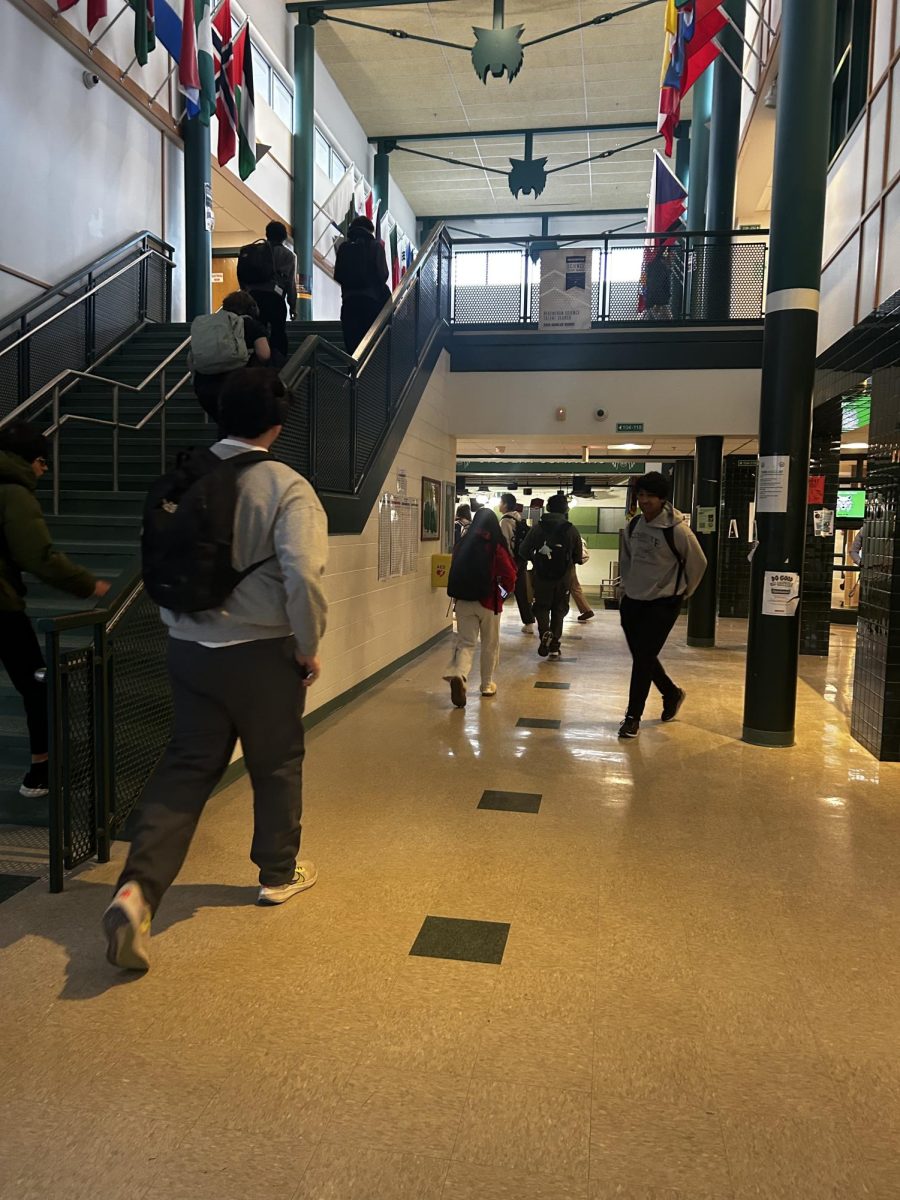About APEX – 15 years ago, the Advanced Placement Experience Scholars Program (APEX) was founded specifically for the WJ cluster, in an effort to establish a viable alternative to Blair’s Communication Arts Program and RM’s International Baccalaureate program. The program participants are admitted in a selective process and are required to take certain specialized courses as a group throughout the four years.
What is your reaction to APEX in one word? Intense. No social life. Agitating. Different. Superiority. Hard work.
These descriptions of APEX by non-APEX students give a telling glimpse into the perceptions of their school’s signature program, an integral part of WJ.
APEX is limited: it is comprised of 50 to 60 people per grade compared to the approximate 500 students in each grade. However, its influence is just the opposite, as many non-APEX students can attest. Certain stigmas, both positive and negative, surround the program. Viewpoints vary on the benefits and downsides of its level of separation from the rest of the school, as well as whether students within it are better prepared for college than the rest of the student body.
Non-APEX junior Maria Perica sees the program as essentially a good thing for those in it.
“The kids who can do more should be given the opportunity to challenge themselves as much as they can,” she said.
There’s no question that APEX students are viewed in a certain way: high achieving and hard working – some might even call it nerdy. This label is not confined simply to APEX, as many of WJ’s high achieving students are outside the program.
“The stereotype perception is that the APEX kids are driven and booky, but aren’t any smarter than anyone else,” said social studies teacher Nathan Schwartz, who teaches both APEX and non-APEX classes. “There are kids who are as smart and as driven as any APEX kid I’ve ever taught in the regular program because this is a high achieving school.”
Some students feel that APEX’s selectivity and high academic standards creates a competitive, exclusive and elite atmosphere. Many non-APEXers feel that everyone regards APEX kids as smarter and better, including APEX students, when in reality this may not be true.
“There’s a sense that they’ve accomplished more – that they’re going places where other students are not going,” said non-APEX junior Itai Yasur. “Students generally seem to regard them as smarter and more hardworking. I think that’s false.”
Perica, who is a confessed non-APEX high achiever, pointed out that while she works hard as well, it’s mostly in the areas of math and science. Humanities-heavy APEX simply wasn’t the program for her but she still avoids using the “nerd” label.
“A lot of people gravitate towards calling them nerds,” she said. “I don’t do that because I study a lot, I work really hard also. I see them as caring about their future.”
One of the defining features of APEX is its rigorous coursework. But does the advanced material and larger workload actually give APEX students a head start for college? This idea is disputed. Some WJ students who take advantage of the many AP class offerings feel no less prepared than anyone in APEX.
“I’ve taken as many if not more AP’s and challenging classes as my friends in APEX, and I’ve gotten to choose the ones I wanted to do when I wanted to do them,” said non-APEX senior Orli Berman. “I feel I am just as prepared for college as my friends are.”
Then again, some do believe that having APEX on a resume looks better to colleges, and that work habits acquired in the program will be useful later on. It is unclear whether APEX, or even high school, for that matter, can fully prepare students for the future.
“I’m sure they’re much better prepared to get into college and probably much better prepared to succeed in college,” said Yasur. “But the ability to write a good English paper . . . isn’t going to get anyone ahead in life.”
While APEX is designed to scale back its influence each year of high school, allowing APEX students to integrate fully into the school, it is distinctly separate especially freshman year when APEX requires three classes. According to some, this separation does not allow APEX students to mix fully with the rest of the student body which is detrimental to both.
“I have some friends who are in APEX and I’m less friends with them because I don’t have any classes with them,” said non-APEX freshman Alan Kaplan.
English teacher Joanne Reynolds, who teaches freshman APEX English as well as non-APEX classes, feels that by separating the high achievers from the rest of the pack, APEX runs the risk of removing positive role models for the rest of the students.
“Studies show that you learn from the study habits and attitudes of those around you,” she said. “These high achievers and role models with the best study skills would be good to have scattered in our classes.”
However, APEX decreases its influence throughout high school, allowing its members to integrate more fully into the wider WJ community. According the Schwartz, the specific benefits of APEX can be brought to the entire school.
“The kids are given a setting to think and talk and debate that they then can take to the rest of the school and model those skills,” said Schwartz. “That said, there are regular students who do the same thing.”
Opinions and stereotypes may vary, but one thing is agreed upon by all: APEX is a fundamental element of WJ. After all, who else could you call “too school for cool?”







